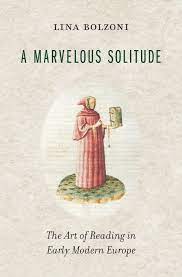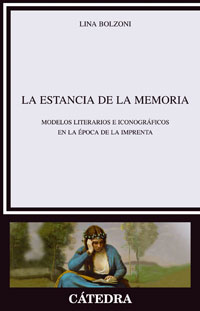A marvelous solitude
the art of reading in early modern Europe
- ISBN: 9780674660236
- Editorial: Harvard University Press
- Fecha de la edición: 2024
- Lugar de la edición: Cambridge (MSS). Estados Unidos de Norteamérica
- Encuadernación: Cartoné
- Medidas: 24 cm
- Nº Pág.: 256
- Idiomas: Inglés

A preeminent Renaissance scholar illuminates early modern encounters with books, in which literature became a portal to self-awareness and miraculous communion between author and reader.
The experience of reading is often presented as personal and transformative-a journey of self-discovery and, perhaps, renewal. In A Marvelous Solitude, Lina Bolzoni examines the early modern roots of this attitude toward the readerly act. Between the fourteenth and sixteenth centuries, European men of letters increasingly came to see books as something more than compendia of knowledge: they could also help readers understand the human condition. As Bolzoni shows, Petrarch, Boccaccio, Machiavelli, Montaigne, and Tasso all presented reading as a private encounter and a dialogue with the author.
For many Renaissance intellectuals, reading was instrumental to the construction of the self, which was enriched by contact with other learned men. These readers imagined the book as a mirror image of its author, with whom they held a secret affinity. In their letters to one another, humanists described the book as a body, reflecting the notion that reading literature placed its author in the room with oneself. Reading the work of a deceased author became akin to a necromantic rite, as the writers of bygone times were resurrected and placed in contemporary conversation. The vogue for hanging portraits of authors in libraries and studios ensured that the image of the creator was never far from his words, cementing bonds of friendship across barriers of time.
These myths-charming, fragile, and powerful-invested the readerly encounter with miraculous properties that lingered in the hearts of the Romantics. And something of those wonders persists today, in the intimate feeling that reading yet provokes.
1. Petrarch and the magical space of the library
2. The text as a body and the resurrection of the ancients
3. Portraits, or the desire to see the author
4. Reading, writing, and the construction of the self
5. Machiavelli's letter to Vettori
6. Montaigne's tower
7. Tasso and the dangers of reading
Epilogue: Ruskin, Proust, and the "miracle of reading."







